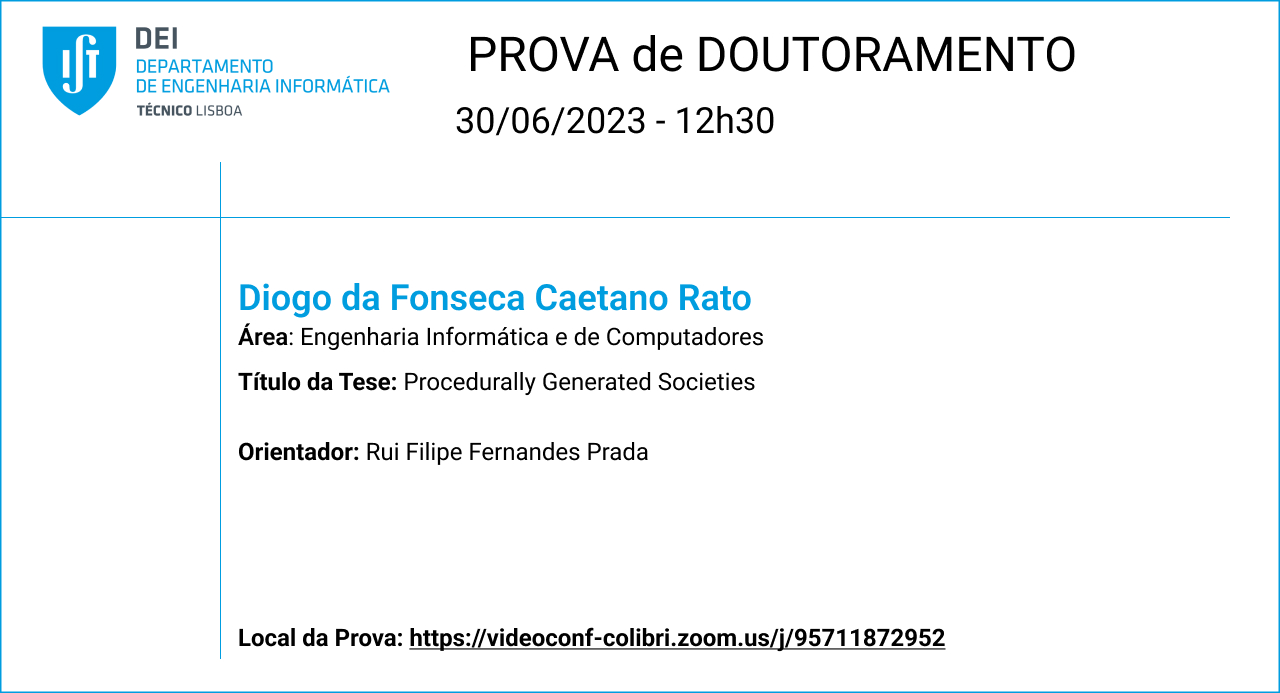Prova de Doutoramento do aluno Diogo da Fonseca Caetano Rato

Área: Engenharia Informática e de Computadores
Título da Tese: Procedurally Generated Societies
Local da Prova: https://videoconf-colibri.zoom.us/j/95711872952
Data: 30/06/2023
Hora: 12h30
Abstract: In the past decade there has been an increased use of procedural content generation techniques in digital games. However, whereas these techniques allow the creation of virtual environments that are getting larger and larger, they need more believable characters to populate them. The absence of social behaviours that match the scale of these virtual worlds produces an unappealing player experience and, to an extent, might compromise their immersion. This thesis approaches the problem of generating social groups in games by exploring the application of social identity theory in virtual agents, and studying how humans perceive the social intelligence of agents in digital worlds. Towards creating better groups of social agents in digital games, we address three research challenges related to the procedural generation of societies in games: (i) identifying what aspects of social interaction in game-like environments players identify as more socially motivated; (ii) designing a computational model for social agents that directly accounts for the social surroundings in their cognitive resources, and (iii) explore algorithmic approaches for generating social groups in-game scenarios based on the proposed socio-cognitive model. This thesis contributes four main results. Firstly, we describe and characterize the space of social roles in the gameplay layer and the social structure of games with social robots. Secondly, we contribute a model for agents that adjusts their behaviour based on their social context called Cognitive Social Frames. Thirdly, we report on the findings of a series of experimental studies conducted to understand the attribution of social motivations to virtual characters. Finally, we introduce a pipeline to generate social group specifications, including a framework to create and deploy multi-agent societies.
